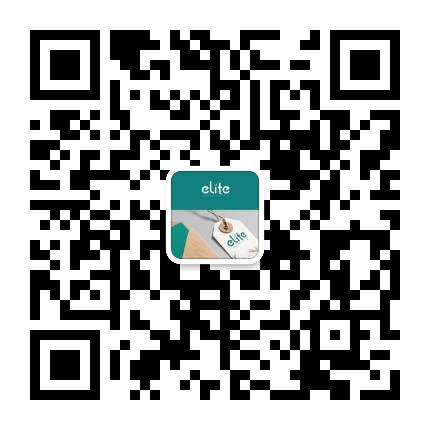Provisions on the Procedures for Administrative Law Enforcement of State Security Organs and Provisions on the Procedures for Criminal Case Administration of State Security Organs issued recently by China’s Ministry of State Security will be duly enacted and come into force on the 1st day of July, 2024. The above two provisions have received wide public attention and positive feedback from the society, who view them as a significant step forward in the legal construction of national security. However, some hostile overseas anti-China forces have seized the opportunity to distort the truth by making scandalous and false allegations, claiming that “all people will undergo phone checks when they enter China border”, which is absolutely preposterous!
国家安全部近期公布的《国家安全机关行政执法程序规定》和《国家安全机关办理刑事案件程序规定》,将于2024年7月1日正式生效。社会各界对于这两个部门规章广泛关注并给予积极评价,认为这是深化国家安全法治建设的重要体现。同时,一些境外反华敌对势力借机造谣抹黑、搬弄是非,大肆炮制所谓“所有人入境中国都会被查手机”,实属荒谬至极!
I. “一种荒谬论调”不攻自破 How was the Allegation Made?
Recently, some overseas hostile anti-China forces, like villains filing suit against his, have hyped up these two departmental regulations which were formulated in strict accordance with the higher-level law, and maliciously fabricated such sensational claims as "mobile phone seized when entering China." This is not just a typical deliberate slander, which aims to create something out of nothing, but a stereotypical self-mirror imaging of “measuring others with one's own yardstick while framing the righteous”.
近期,一些境外反华敌对势力以“恶人先告状”的方式对这两个严格依据上位法制定的部门规章进行大肆炒作,恶意编造所谓“入境中国被查手机”这类耸人听闻的言论,这是标准的“欲加之罪,何患无辞”的蓄意抹黑,更是典型的“以己度人、贼喊捉贼”的自我镜像。
For some time now, some Western countries, who proclaimed themselves to be “a society under the rule of law” and a “beacon of democracy”, have been practicing double standards and politicizing legal instruments. Incidents such as unwarranted harassment and interrogation of Chinese citizens, arbitrary detentions in the "dark rooms," and forced "inspection of phones" have been of common occurrence. Even in certain countries, customs and border departments have specifically issued regulations, claiming that they can arbitrarily demand people to give up their passwords and inspect electronic devices without acquiring approval. Otherwise, they will confiscate their electronic devices, forcibly copy the contents, and deny them entry. These wanton enforcement practices, devoid of any semblance of the rule of law, have morphed into a “malignant tumor” undermining state-to-state and people-to-people exchanges, which has become another ironclad evidence of discrimination against Chinese and Asian ethnic groups.
一个时期以来,个别自我标榜为“法治社会”和“民主灯塔”的西方国家,“说一套做一套”,惯于将“法律工具”政治化,针对入境中国公民的无端滋扰盘问、随意关“小黑屋”、强行“查手机”等事件屡见不鲜。甚至有个别国家的海关边境部门专门出台规定,宣称无需获得批准,即可任意查验入境人员电子设备,并要求提供解锁密码,否则将没收电子设备、强制拷贝内容,并拒绝其入境。这些胡作非为的执法乱象,哪有一点法治可言,已成为破坏国家交往、民间交流的“新毒瘤”和歧视华人、亚裔族群的“新实锤”。
Those who know they are in the wrong and fully aware of the wrongful practices of certain countries' law enforcement departments in arbitrarily inspecting the phones of incoming travelers, delude themselves into thinking that China should also emulate such illegal actions. This is undoubtedly making presumptions about others based on their own behavior. Those with ulterior motives, afraid of the severe consequence of jeopardizing China’s national security, can but sling mud at China's law enforcement agencies like a thief donning a judge’s robe.
那些自知理亏之人,明知有个别国家执法部门有随意检查入境人员手机的恶行,就一厢情愿地认为中国也会效仿这种非法行径,无疑是“以己度人”。那些心怀叵测之人,恐惧其危害我国家安全的行为遭到严厉打击,就对中国执法部门进行“泼脏水”式的恶意攻击,纯属“贼喊捉贼”。
II. “两个部门规章”出台有据 What are the Related Laws and Regulations?
China is a country under the rule of law, which stringently protects the citizens’ freedom and privacy of communication. The China’s Constitution and laws explicitly stipulate that no organization or individual may infringe upon citizens’ freedom and privacy of communication for any reason except for due legal reasons or procedures. This fully demonstrates the balance between safeguarding national security and ensuring individual rights.
中国是一个法治国家,严格保护公民的通信自由和通信秘密。中国宪法和法律明确规定,非因法定事由,非经法定程序,任何组织和个人不得以任何理由侵犯公民的通信自由和通信秘密,充分体现了维护国家安全和保障个人权利的平衡兼顾。
In recent years, national security organs have been steadfastly implementing the strategic plan of the CPC Central Committee to comprehensively advance law-based governance by actively participating in the construction of a national security legal system with Chinese characteristics, and promoting the practical, professional, and standardized construction of national security legal work. Counterespionage Law of the People's Republic of China and Criminal Procedure Law of the People's Republic of China, as the upper-level laws of two departmental regulations, respectively make authorized provisions for the administrative law enforcement and criminal investigation powers of the national security organs. As an important basis for the national security organs to regulate law enforcement and judicial activities, the two departmental regulations elaborate the powers and functions of the national security organs strictly within the scope of the authority conferred by the upper-case legislation. They establish clear and stringent standards for all law enforcement powers, embodying an integrated approach to combating illegal activities while prioritizing the protection of human rights, and ensuring a balance between the exercise of law enforcement powers with the safeguarding of legitimate rights and interests.
近年来,国家安全机关坚决贯彻落实党中央全面依法治国战略部署,积极参与中国特色国家安全法律制度体系建设,推进国家安全法治工作实战化、专业化、规范化建设。《中华人民共和国反间谍法》《中华人民共和国刑事诉讼法》等作为两个部门规章的上位法,分别对国家安全机关的行政执法权、刑事侦查权作出授权性规定。两个部门规章作为国家安全机关规范执法司法活动的重要依据,严格在上位法赋权的范围内对国家安全机关各项职权进行细化,并对所有执法权都作出清晰明确的严格规范,体现了惩治违法犯罪和尊重保障人权的有机统一,实现了履行执法权力和保障合法权益的统筹兼顾。
III. “三个明确查验”严格规范 Inspection Clearly Specified in Law
Espionage activities pose a serious threat to national security, and all countries have adopted legislation to combat them. In order to effectively prevent, stop, and punish espionage-related crimes, the newly amended Counterespionage Law of the People's Republic of China provides specific regulations on the lawful inspection of electronic equipment and facilities by state security organs in accordance with relevant provisions of the Constitution.
间谍行为是严重危害国家安全的活动,各国都通过立法予以严厉打击。为有效防范、制止、惩治间谍违法犯罪活动,新修订的《中华人民共和国反间谍法》依据宪法有关条款,对国家安全机关依法查验电子设备设施作出具体规范,两个部门规章从执法程序上对此均有一系列严格限定。
Clearly specified inspection prerequisites: Inspections must be carried out as part of lawful counter-espionage tasks. National security personnel cannot conduct inspections arbitrarily or privately in situations unrelated to counter-espionage work.
——查验前提明确。必须是依法执行反间谍工作任务。在与反间谍工作无关的情况下,国家安全机关工作人员不能私自随意查验。
Clearly specified inspection targets: They must be individuals or organizations related to counter-espionage work, such as suspected spies who take pictures or videos in military restricted areas or classified units. Inspected subjects cannot be unrelated individuals, let alone average incoming persons.
——查验对象明确。必须是与反间谍工作“有关的个人和组织”,比如对军事禁区、涉密单位等进行偷拍的间谍行为嫌疑人员。查验对象不能是无关人员,更不会是“普通入境人员”。
Clearly specified inspection procedures: Approval for inspection must be obtained from the head of a national security organs at the municipal level or above. Law enforcement documents must be presented, and either the person being inspected or a witness must be present. If any national security risks are found, the responsible party must be ordered to rectify them. If rectification is not possible or refused, the facility may be sealed or detained in accordance with the law. It is particularly stipulated that in emergency situations where immediate inspection is necessary, approval must still be obtained from the head of a national security organ at the municipal level or higher. This requirement is more stringent compared to the general practice outlined in the Administrative Compulsion Law of the People's Republic of China, which typically permits immediate action followed by subsequent approval. This demonstrates adherence to the rule of law and the responsible exercise of authority.
——查验流程明确。必须经设区的市级以上国家安全机关负责人批准;应当出示执法证件;有被查验人或见证人在场;发现危害国家安全隐患的应责令整改,整改不能消除危害或者拒不整改的可依法查封扣押。特别是明确规定,在紧急情况下必须立即查验的,也应经设区的市级以上国家安全机关负责人批准,这比《中华人民共和国行政强制法》规定的紧急情况下“先执行后报批”的一般要求更为严格,体现了依法办事、谨慎用权的法治理念。
The national security organs have consistently adhered to the Constitution and laws, upheld the principle of "acting in accordance with the law and refraining from unauthorized actions", and insisted on standardized, fair, and civilized law enforcement practices. At the same time, the national security organs will strictly implement the law enforcement supervision system and strengthen the law enforcement supervision mechanism. Supervision from people of all sectors of society over the national security organs and their personnel is welcomed so as to ensure that national sovereignty, security, and development interests are always safeguarded with the rule of law.
国家安全机关始终严格按照宪法法律办事,秉持“法定职责必须为、法无授权不可为”的理念,坚持严格规范公正文明执法。同时,国家安全机关将严格执行执法监督制度,强化执法监督机制和能力建设,欢迎社会各界对国家安全机关及其工作人员进行监督,确保始终在法治轨道上维护国家主权、安全、发展利益。
Source: WeChat Official Account of China’s Ministry of State Security
Contact Us

Support Center
Support Representative




